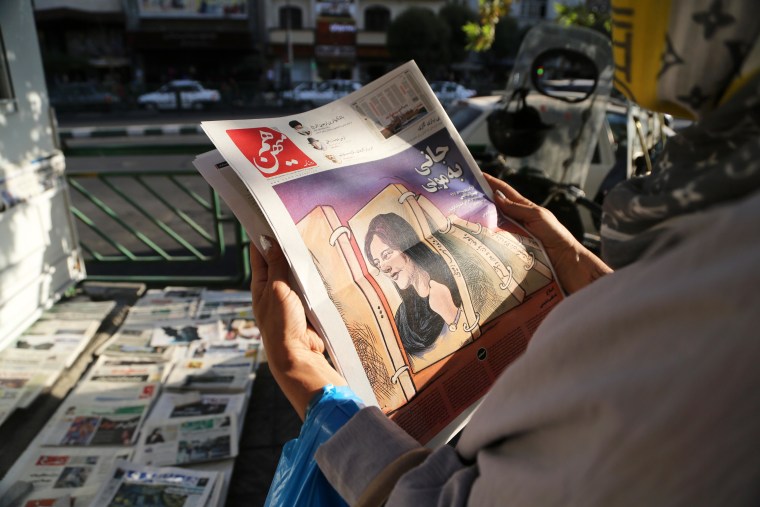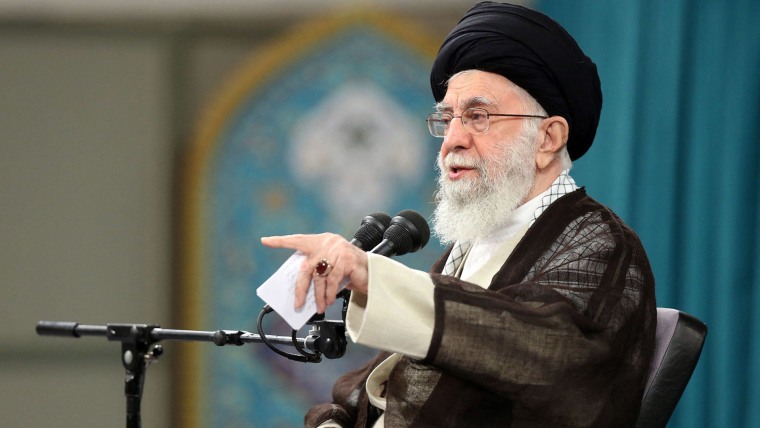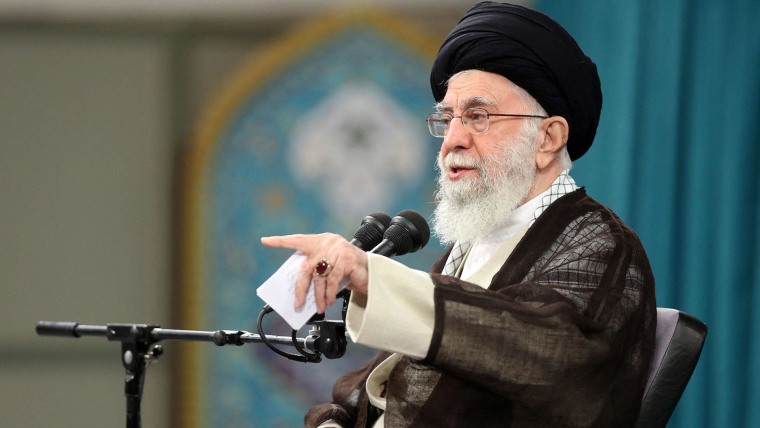The first known death sentence handed down to a defendant linked to the unrest sweeping Iran has fanned fears of an even harsher crackdown as the government struggles to stamp out demonstrations challenging its rule.
Mizan, a news agency run by the Iranian judiciary, reported that the defendant, who was not identified, had been found guilty of setting a government office on fire and causing “destruction and corruption on earth.”
The death sentence, which was issued Sunday and can be appealed, according to Mizan, stemmed from the protests that have rocked the country since September after the death of 22-year-old Mahsa Amini, who was detained by the country’s morality police for allegedly failing to comply with the country’s strict dress code.
On Tuesday, Tasnim agency reported that a second defendant had been sentenced to death for “creating terror and fright in the streets, stabbing and injuring a person and setting a citizen’s motorcycle on fire.”
At least 10 protesters have been charged with offenses that carry the death penalty, according to Jeremy Laurence, a spokesman for the United Nations High Commissioner for Human Rights, who called on the Iranian government to release the “thousands” of people arrested in connection with the protests.
Mansoureh Mills, a researcher on Iran for the human rights group Amnesty International, said the sentence and arrests showed that the government was trying to end the unrest, once and for all.
“The Iranian authorities are now desperately trying to put an end to the popular uprising by taking ever-more drastic measures such as using the death penalty as a form of political oppression to instill fear into the people of Iran and to deter further protests,” Mills said.
The U.S.-based activist Human Rights Activists News Agency said that 15,800 protesters have been detained and 344 killed since the protests began.Independent reporting is suppressed in Iran and it is impossible to confirm these numbers.
The protests against Amini’s death, and those of others swept up in demonstrations, pose one of the most serious challenges to the government since the 1979 Islamic Revolution, experts say.
Many demonstrators have chanted slogans against the country’s supreme leader, Ayatollah Ali Khamenei, and President Ebrahim Raisi, including “Death to the dictator!” and one that has become the rallying cry of the protests: “Woman, Life, Freedom!”

Historians who study Iran, human rights activists, political analysts, U.S. officials and Iranian experts all say the protests represent a potentially revolutionary moment, and that Iranians are increasingly ready to risk their lives for the cause.
“While the protests in Iran began in response to the death in custody of Mahsa Amini, they quickly broadened to encompass decades-long anger and resentment against the Islamic Republic political establishment for corruption, oppression, poverty and serious human rights violations and crimes under international law committed by the Iranian authorities,” Amnesty’s Mills said.
The prosecutor in Tehran has also announced that some 1,000 indictments have been issued in connection to the protests in the province of Tehran, according to the United Nations.
On Monday, the European Union announced new sanctions against 29 individuals in Iran and three entities over the ongoing crackdown on protesters. The United Kingdom also announced two dozen sanctions against Iranian officials on Monday.
National security adviser Jake Sullivan said Monday that the United States was “deeply concerned about reports from Iran of mass arrests, sham trials, and now a death sentence for protesters voicing legitimate demands against a government that systematically denies basic dignity and freedom to its people.”
“The human rights abuses inflicted by its government must not go without consequence,” Sullivan said in a statement. “The hundreds of protestors already killed at the hands of Iranian state authorities deserve justice.”
Sullivan said that the U.S. supported the European Union and U.K. sanctions and that the U.S. and its allies would “continue to pursue accountability for those responsible for these abuses through sanctions and other means.”
The European Union’s foreign policy chief, Josep Borrell, said in a statement Monday that the bloc “strongly condemns the unacceptable violent crackdown of protesters.”





